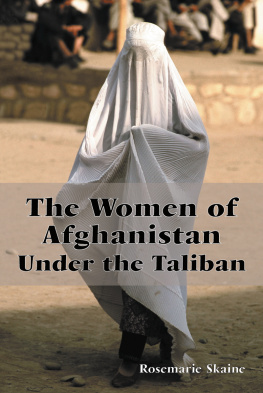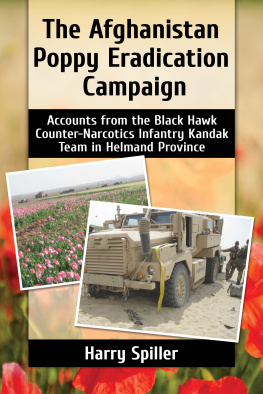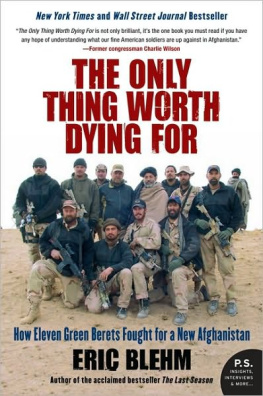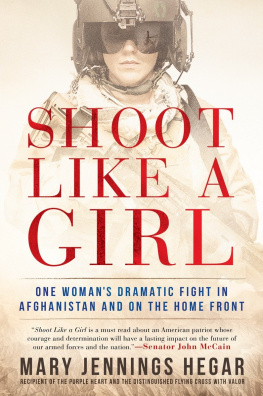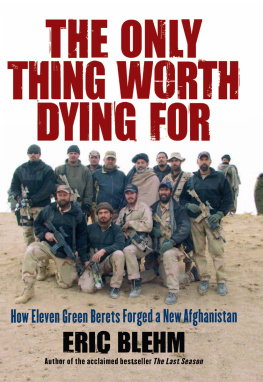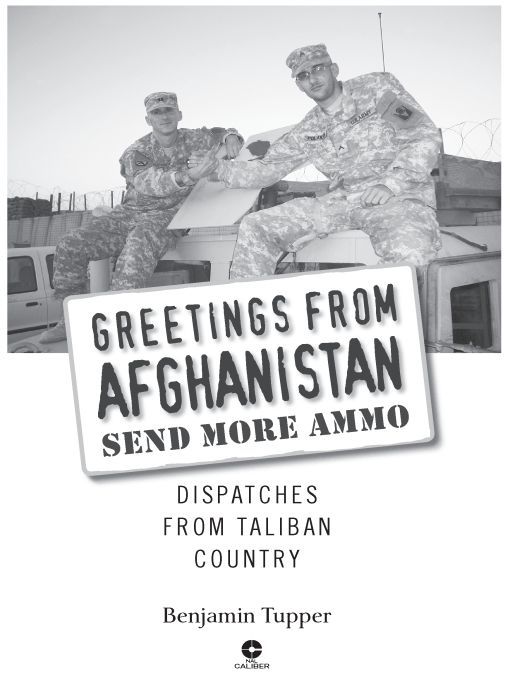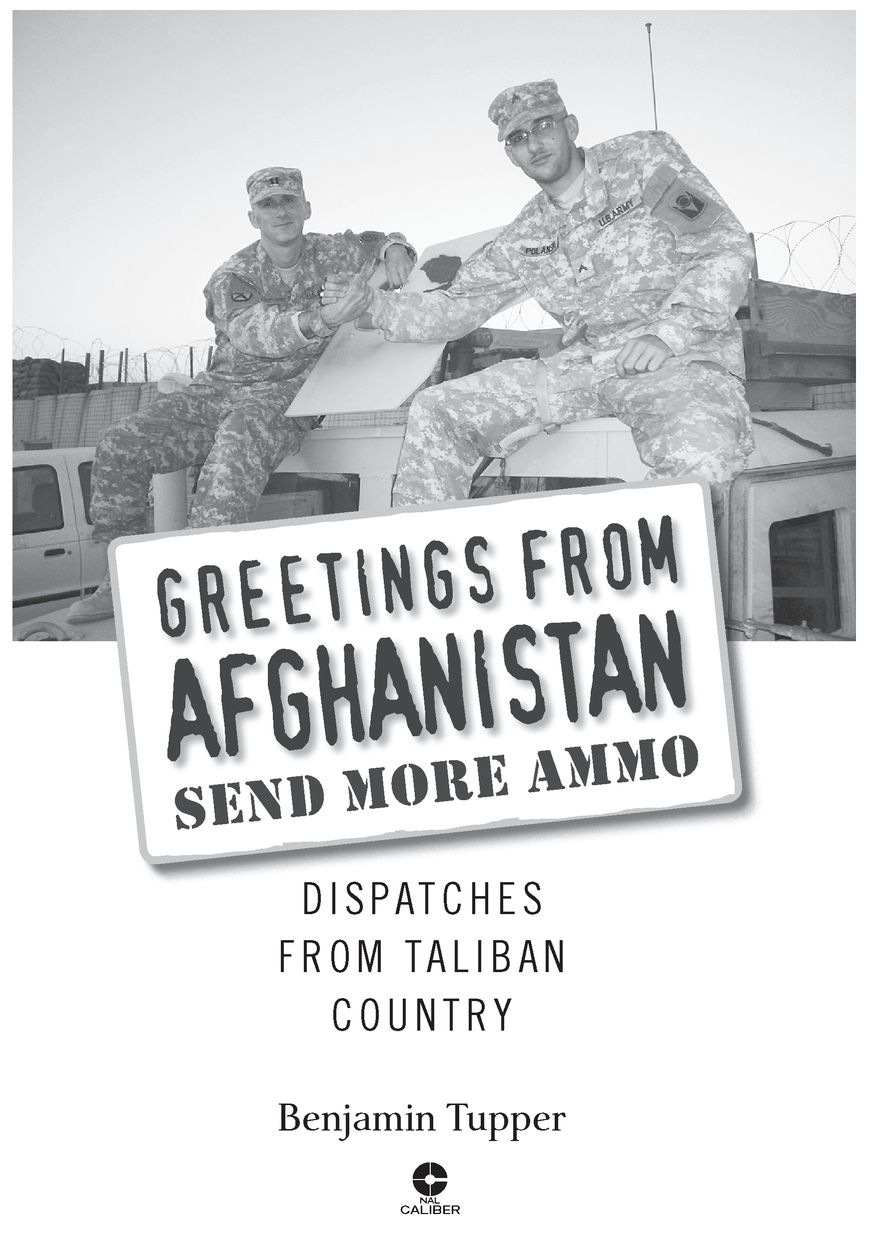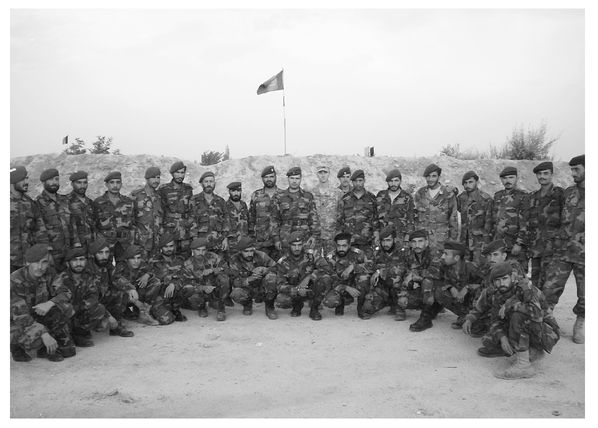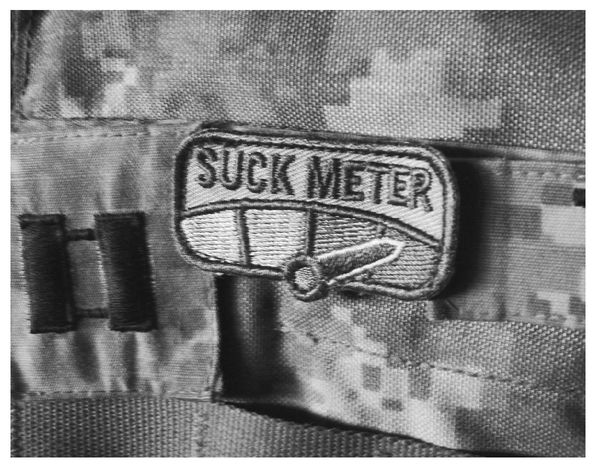Table of Contents
To the Afghan soldiers, the combat interpreters,
and the War Eagle and Blackfoot ETTs:
Your courage and bravery kept me alive.
Your humility and willingness to sacrifice for the greater
good of the mission inspired me.
Your example of transcending differences in culture,
language, and religion assured me that the foundation for a
new, tolerant, and peaceful Afghanistan will be built upon
your legacy.
The three musicians sat with legs crossed on the floor around me, sipping chai as our interpreter translated their stories for the handful of Americans present. The musicians spoke softly, in a calm tone that suggested an uneventful and ordinary story. Perhaps for Afghans living through the reign of the Taliban, these were normal stories: imprisonment and torture for playing their music, threats against family members, and burying instruments to prevent the Taliban from confiscating and destroying them.
Earlier in the day, I had visited the Afghan National Museum in Kabul, where I was greeted by defaced statues, shattered pottery, and torn canvases. This home to Afghan art history had borne the brunt of the Talibans war on culture. In a corner of the museum sat the masterpiece of their destructive work: a large display case housing hundreds of paintings and drawings that spanned generations of artists. The paintings were all ripped into pieces by zealous Taliban foot soldiers.
It was on this day that I decided I wanted to play a part in this war. I was in Afghanistan as a civilian with an NGO called Afghans4Tomorrow, but the sense of outrage that I felt witnessing firsthand what the Taliban had done was so profound, I needed to be more involved fighting them. Two years later, I would return to Afghanistan as a soldier. My decision to come back had nothing to do with the flag-waving politics that had swept America. It had nothing to do with September 11. Instead, I felt Americans had a moral and historical obligation to help stabilize Afghanistan, after we had abruptly disengaged from the country at the conclusion of the Afghan-Russian war. Our disappearing act in 1990 led directly to a decade of civil war, and ultimately to the Taliban taking over most of the country. For years the world sat by while the Taliban enslaved women and purged art and culture from Afghanistan. Now I had a chance, in my own small way, to work to undo this error, and to ensure that the next generation of Afghan girls could attend school, and that artists could paint, and musicians sing, without fear of torture and imprisonment.
INTRODUCTION
ETTS: THE TIP OF THE COUNTERINSURGENCY SPEAR
Forget what you know about the American Army. Strip from your mind the familiar images of U.S. soldiers fighting their way through Germany, Korea, or Vietnam. The essays you are about to read reveal another side of the American soldiers experience at war: individual soldiers removed from the comfort and familiarity of their Army units and placed into the ramshackle, newly formed Afghan National Army.
These American soldiers are the ETTs, the Embedded Training Teams. An average ETT team consists of sixteen American soldiers, embedded into an Afghan battalion of about five hundred soldiers. These ETTs are separated into teams of two, each team assigned to its own individual Afghan National Army company of about one hundred Afghan soldiers. They are embedded into these foreign ranks with little knowledge of Afghanistans language, history, or culture, and they are forced, often in the heat of battle, to abandon the American doctrine of warfare and embrace creativity, patience, and primitive war-fighting techniques.
These essays are my personal stories as a member of this force in Afghanistan. ETTs are Marines, Army, and most often Army National Guard officers and NCOs assigned to the fledgling Afghan National Army (ANA), where they are tasked with the daunting mission of training the ANA in garrison, leading it in combat, and mentoring it to a final victory against a thriving and brutal Taliban insurgency.
These essays provide an introduction to the Afghan war as seen through the partnership of the ANA and the ETTs, forming the literal tip of the spear in the counterinsurgency fight. They chronicle the personal experiences of two ETTs: myself, Captain Benjamin Tupper (Infantry), and my partner, Corporal Radoslaw Polanski, also an infantryman. The stories vary in their scope, from personal war stories of our successes and failures in combat, to observations of day-to-day life inside the Afghan Army; the humorous moments, the culture clashes, the voice-raising arguments, and the differing roles that religion, women, and politics play in the lives of Afghans and the American soldiers assigned to train them.
This collection of essays also explores the injuries inflicted during war, from the slow but steady degradation of healthy minds by combat stress, to treating the physical wounds of combat, to the deaths of our comrades and enemies.
To understand Afghanistans culture, its potential for modernization and democracy, and its remaining military challenges, one must walk in the shoes of the Afghan people and its Army. From May 2006 to May 2007, I walked in those shoes. These essays are the footprints of my journey.
Members of the 3rd Company, 2nd Battalion, 1st Brigade, 203rd Corps of the Afghan National Army, along with Captain Tupper (center, rear).
SECTION 1
WAR STORIES
EMBRACE THE SUCK
I first heard the phrase embrace the suck in Pittsburgh in 2001. I was in the living room of a college buddy, nursing a hangover, and flipping through a popular national magazine. Inside was an unsanitized article about field conditions in Americas newest war: Afghanistan. The list of hardships that soldiers were experiencing in the heat and dust was described in vivid detail. But the spirits of the American infantrymen were undeterred. Their Zen-like approach was to embrace the suck, a strategy of treating the hardships as friends, not enemies, and driving on.
Less than two weeks after my arrival in Ghazni, I was baptized by sweat and filth into this brotherhood of suffering and misery. I had just returned from a weeklong mission in the field with our ANA infantry battalion when I found myself in awe over the degradation of my physical body in such a short time.
Operation Desert Lion, as it was called, consisted of a series of sweeps deep into remote corners of Ghazni Province, with overnight bivouacs in various district centers. The operation, my first personal foray into real-world warfare, ended up being quite successful. We captured over a dozen suspected Taliban foot soldiers, and the Afghan National Police (ANP) captured a confirmed al-Qaeda regional commander. No friendly forces were killed or injured.
Suck Meter patches, commonly worn by ETTs and Special Forces soldiers. These unauthorized patches were a comical reference to the need to embrace the suck.


